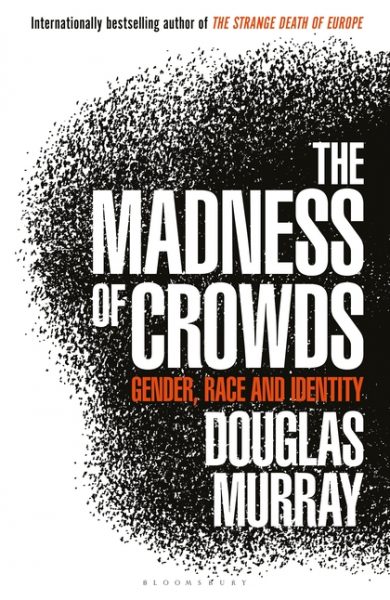Kulak went to a political rally and came back with some thoughts on non-mainstream political gatherings of all flavours:

Kim Kelly on X: The chatter over Jake “Q Shaman” Angeli’s identity is missing a key element: his tattoos. He’s covered in Odinist symbols — Yggdrasil, Mjolnir, and, significantly, the valknut.
I attended a political event recently in my country, that a mainstream party had vaguely endorsed, but more of a general right wing-anti-tax protest. You had people from the fringe parties, and people and speakers from the fringe of the fringe parties.
We did the protests, then all ended at a large venue where there were coffee, donuts, and speeches … My god the speeches.
Some admittedly were well prepared, the representative of the mainstream party who showed up at the end was very professional befitting a former and probably future politician. But in-between you had rolling, unprepared, barely understandable speeches about chemtrails, sovereign citizenship, and UN Agenda 2030 conspiracies, all mixed with real concerns about local government taking property rights …
And I’ll admit I got damned frustrated. “This is why we lose”, I thought. Echoing a dozen different think pieces on the “Stupid Right” many from right wingers themselves. I was embarrassed that this was the state of political organization and human capital on the “far right”.
What is wrong with these people? I thought, and I’m sure many of have thought.
Well nothing. The problem is with you!
Unlike most online right wing intellectuals I’ve been involved in various type of organized politics, and I had friends who were involved in Left Wing politics who, when I was still an ideological niaf, I humored and attended their meetings.
Every Single Grassroots Political Movement is populated by cranks of various amounts of semi-retardation, and every single one spends an inordinate amount of time at best humouring them, or worse, taking them 100% seriously.
I’ve seen this in mainstream political parties when you talk to any of the volunteers. And I’ve seen this on University campuses where if you let your left wing friends drag you to one of their meetings you’ll be serenaded by barely articulate native activists, feminist extremists who want everyone to pray to Gaia, Black “we wuz” radicals, and every kind of queer identity you can possibly imagine, giving just as if not more retarded takes in even worse coherence, but seemingly actively trying to derail every attempt at meaningful policy advancement or coalition building in favour of struggle sessions and “consciousness raising”.
Say what you will about the sovereign citizen guy … He had a whole list of meaningful proposal with direct actions to take which, setting aside the theory, would actually make public employees and local councillors probably cave out of the sheer misery of dealing with it.
The queer, native, and black activists? Their proposals ranged from non-existent, to actively crippling the groups own organizational capacity in some purity/diversity spiral.
Beyond that however, this collection of right wing weirdos and concerned citizens was meeting in an ex-urban industrial building one of the organizer’s friends let them use. The left wing losers (of whom most were activists in the city, not students) were meeting in a limestone university campus with cathedral ceilings and snacks provided out of student dues and tax dollars.
The immediate organizers of the right wing protester were mechanics, the organizers of these left wing meetings were Professors, several of whom were even lest coherent or policy oriented.
What was their excuse?
Part of me thinks this is why Left wing organizers are perpetually convinced they’re the little guys fighting against a vast right-wing Koch Funded machine out to crush them … because, in spite of getting state funding for protests and stainglassed cathedral high rooms to organize from … They spend 80+% of their time listening to the losers of the losers.
So then why is it right wing intellectuals are convinced their side is stupid?
Well because left wing stupidity doesn’t count, in fact you’re racist for noticing it.










